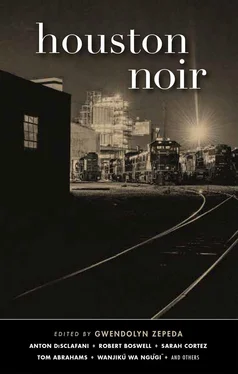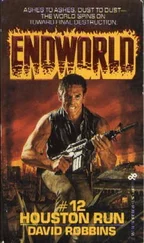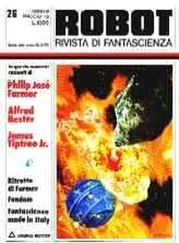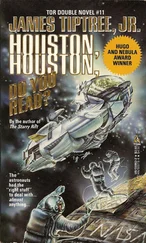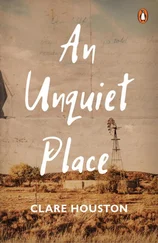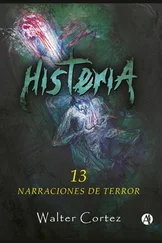Sarah Cortez - Houston Noir
Здесь есть возможность читать онлайн «Sarah Cortez - Houston Noir» весь текст электронной книги совершенно бесплатно (целиком полную версию без сокращений). В некоторых случаях можно слушать аудио, скачать через торрент в формате fb2 и присутствует краткое содержание. Город: New York, Год выпуска: 2019, ISBN: 2019, Издательство: Akashic Books, Жанр: Детектив, на английском языке. Описание произведения, (предисловие) а так же отзывы посетителей доступны на портале библиотеки ЛибКат.
- Название:Houston Noir
- Автор:
- Издательство:Akashic Books
- Жанр:
- Год:2019
- Город:New York
- ISBN:978-1-61775-706-8
- Рейтинг книги:3 / 5. Голосов: 1
-
Избранное:Добавить в избранное
- Отзывы:
-
Ваша оценка:
- 60
- 1
- 2
- 3
- 4
- 5
Houston Noir: краткое содержание, описание и аннотация
Предлагаем к чтению аннотацию, описание, краткое содержание или предисловие (зависит от того, что написал сам автор книги «Houston Noir»). Если вы не нашли необходимую информацию о книге — напишите в комментариях, мы постараемся отыскать её.
Houston Noir — читать онлайн бесплатно полную книгу (весь текст) целиком
Ниже представлен текст книги, разбитый по страницам. Система сохранения места последней прочитанной страницы, позволяет с удобством читать онлайн бесплатно книгу «Houston Noir», без необходимости каждый раз заново искать на чём Вы остановились. Поставьте закладку, и сможете в любой момент перейти на страницу, на которой закончили чтение.
Интервал:
Закладка:
In California, at the women’s college I attended, my listening skills attracted new friends who told me about dates and sometimes date rapes. Wanting to help, I decided to study human behavior. That was what had led me to Houston and its university’s doctoral program. All the stories.
Assuring Luis I would return with more boxes to finish packing his wife’s clothes, I left his house and walked to my own. A police car sailed past me on Lawndale and parked under a crepe myrtle. One officer leaned against the car while the other remained in the driver’s seat, his face shadowed.
“Any progress on the murder?” I called out.
The officer shook his head and introduced himself as Javier Garcia. “We hear you’ve seen strange activity.”
“Just a man wearing a raincoat,” I responded. “He walks at night. But I haven’t seen him since the murder.”
“Aren’t you from the Middle East?” Cop Garcia asked.
“Pakistan. It’s part of South Asia.”
His face remained blank. “There aren’t many immigrants from your country in this neighborhood. If you feel any threat, or if you see anything suspicious, just call us.” He handed me his card before they drove away.
The second murder was reported on a Friday afternoon. My friend Sylvia called with the news: “A girl was killed last night.”
I jotted down notes: A twenty-two-year-old Filipina, Maria Lee, who lived a few streets from Sylvia’s house, had been murdered. If a neighbor walking his dog had not seen her body on the train track, Maria Lee would’ve been crushed by the eleven p.m. freight train.
Within an hour, I was at Sylvia’s house. She lived in her family home, across the tracks from mine, and had once told me the railway line was a border dividing the prosperous and the working class. “You’ve moved into a war zone,” she had said.
Squeezing a lemon wedge into the Corona Sylvia offered, I listened to her fill in the story. “Maria and her mother are from the Philippines. Her mom’s been in Houston for several years, but Maria arrived last month. She worked at a nearby taquería.”
I asked, “Was Maria in a relationship?”
Sylvia shook her head. She walked to her front door to double-check that it was locked. “Maria had an evening shift — her mother expected her after nine that night.” Sylvia shivered. “Her face was bruised and blue when they found her. And she was wearing a tank top and jeans. The murderer used her sweatshirt to strangle her.”
I sucked a lemon wedge. “Sounds familiar.”
“Makes me scared about living alone. But I don’t have a choice.”
Back at my house, I scanned the neighborhood association’s latest update, but there was no mention of Maria Lee. My telephone buzzed. My brother Hasan was calling from Karachi.
I gave him a rundown of my news.
“Are you safe?” he asked. After I reassured him that I was fine, he shared Karachi updates. “There was a bombing — this time at Sehwan, at the Lal Shahbaz shrine. More than eighty people dead. Women and children also.”
Closing my eyes, I remembered the shrine of the Sufi saint, Lal Shahbaz Qalandar. Throughout Pakistan, guards armed with machine guns stood outside shopping malls, cinemas, and even shrines. I wondered why this bombing by extremist forces had not been stopped. Violence was increasing in Pakistan.
When I met Sanjay for a drink at Bohemeos, an East End café/bar, and told him about Maria’s murder, he exclaimed. “You shouldn’t stay there alone! When does your lease expire?”
“Six months.” I sucked a lemon wedge. “Weren’t you the one who told me the neighborhood was safe?”
Sanjay’s brows pushed together, making him look like a vulture. “I didn’t know these murders would happen!”
The television above him streamed images of men and women protesting. One banner read, Collapse the Walls .
“I can’t sit back and watch these girls die. The police aren’t getting answers. One of my Karachi friends — he’s a detective in New York — has been giving me a crash course on finding clues and checking alibis.”
“So what’s he telling you? Don’t get into risky situations? ”
I shrugged. “I’ve also talked to the police here.” I had been enjoying our open relationship, but Sanjay’s new protective comments made me flinch. Trying not to sound terse, I said, “I keep my doors locked and alarm on. I’m from a city filled with six times as many people as Houston — in Karachi, people are murdered every day. Their deaths don’t even make national news.”
“This isn’t Karachi!” Sanjay said. He flexed his muscles. “Want me to move in? You need protection. You’re the foreigner in this neighborhood.”
“ We’re the foreigners in this country,” I responded. “And we always will be, even if we’re born here. Did you hear about the Indian man killed in Kansas?”
“I suppose they’ve always hated us,” Sanjay conceded. He sat in silence for a moment. “The murders here have one thing in common: both were women, and both were new to this country. And the killing style was the same. I’m surprised there was no... sexual assault.”
I leaned back, continued sucking on my lemon. “Good observations, Dr. Watson. People in my neighborhood haven’t connected the murders, because the second victim lived south of the railway track. If these are anti-immigrant hate crimes, I’ll surely be next.” I downed my beer and stood. “I have to go. I’m going to visit Maria’s mother.” I leaned over and kissed him. “Come over tomorrow and I’ll fill you in.”
I walked away, aware of Sanjay’s eyes pinned on my back.
In her apartment, among faded paisley sofas and framed photographs, Norma Gomez twisted her hands together. “As soon as they release Maria’s body, I’m returning to Manila.”
“This must be so difficult for you.”
Norma shook her head. “I didn’t tell the police, but one time someone sprayed on our door, Go back to where you came from . I wiped away the writing before Maria saw. I didn’t want her to be afraid. I’ve been in this country for five years. No one’s done that before. Things are scarier now that Trump is president.”
“Tell me what happened,” I said, aware I sounded more like a detective than a social worker. But Norma was so ready to talk, and I wanted to help her.
“After her shift, Maria called to say she was going to dinner. I didn’t ask questions. I just wanted her to be happy, so I was glad that she had met a boy.” I nodded, and she continued: “I’d made her favorite stew that night. I kept the food hot, in case she was hungry when she returned. She loved to talk and never ate when she was being social. But... ” Norma mopped her tears with a tissue.
I gave her a moment, then said, “Tell me more about Maria.”
“She was my daughter from my first marriage. I met my second husband in Manila — he served in the US Navy. We got married, and I flew to Houston, but Maria stayed with my mother. I sponsored her after I got my citizenship.”
I didn’t drive home until late that night, just as the freight train sounded its whistle. The gate was down once I reached the tracks. I stepped on my brakes, made sure my doors were locked, and turned off my engine, knowing that I would have to wait at least twenty minutes for the train to pass. The street was still, with no sign of Raincoat Hombre or anyone else.
The night’s excitement didn’t end when I got home. During the evening news, Mrs. Alfaro and the two neighborhood association men, David and Juan, knocked on my door.
Mrs. Alfaro spoke first, pushing up her glasses: “We heard you talked to Mr. Hernandez. And that you’re helping the mother of the other girl who was murdered. Have you talked to the cops?”
Читать дальшеИнтервал:
Закладка:
Похожие книги на «Houston Noir»
Представляем Вашему вниманию похожие книги на «Houston Noir» списком для выбора. Мы отобрали схожую по названию и смыслу литературу в надежде предоставить читателям больше вариантов отыскать новые, интересные, ещё непрочитанные произведения.
Обсуждение, отзывы о книге «Houston Noir» и просто собственные мнения читателей. Оставьте ваши комментарии, напишите, что Вы думаете о произведении, его смысле или главных героях. Укажите что конкретно понравилось, а что нет, и почему Вы так считаете.
